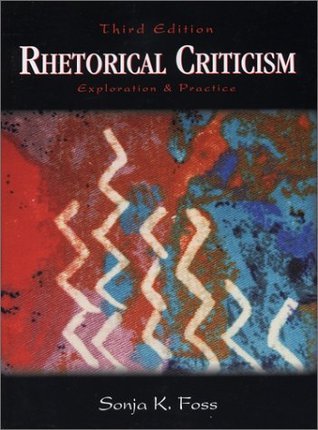My low rating is possibly due to my approaching the book as a theoretical work and not a textbook. However, I understand now why Eagleton has called the study of rhetoric in American universities "the practice of teaching freshmen where to insert semicolons."
Although there is no instruction on the use of semicolons in this book, it's step-by-step breakdown of the process of rhetorical criticism is so reductive and simplistic that it overlooks everything that makes rhetoric interesting as a distinct field of operation. Equating "rhetoric" with "communication" does little to elucidate the applicability of rhetorical criticism. In the final chapter called "generative criticism", the author hints that once one is more experienced as a critic, one may begin criticism with the discovery of an interesting object, rather than a predetermined critical approach. I should hope that this would be the goal of anyone picking up the study of rhetorical criticism, but I suppose that would be overestimating the average American college freshman, particularly if rhetorics is an obligatory introductory course.

